We continue to simply talk about which processor is better, what percentage is needed for games, and we will recommend the optimal computer for 2017.
1. Power consumption
Here Skylake wins, offerings from AMD and Intel from legacy families. Therefore, for now they are more preferable for HTPCs, media centers or laptops.
If you have very little money, then you can offer a Pentium with a graphics core from the GT2 series of the Skylake architecture.
2. Processor dependence and processor for games, what to pay attention to
For those who often play games, it is very important to pay attention to such a parameter as processor dependence. Most of the newest games use extremely intensive processor resources.
The following parameters are important for gaming on a processor:
- At least 4 threads/cores. Although for everyday tasks multi-core is not an important parameter, as for most online games, modern AAA games often require even minimum requirements 4 cores and refuses to start if the processor is 2-core. It is also important to note that the processor can be 2-core, but it must necessarily support Hyper Trading technology for parallelization into 4 threads. For high-performance video cards, the ideal solution would be an intel core i5 or, if you want to save money, an AMD FX 8000.
— The frequency also depends on the level of the video card. For entry level at least from 3 GHz, for Middle-end from 3.4 GHz, for flagships from 3.7 GHz, but if you have money for a bunch of SLI/CrossFire high-performance video cards, then you will also have money for a processor running from 4-4.5 GHz.
As for other parameters, such as cache, architecture, they do not affect performance too much. Therefore, you can even buy a Sandy Bridge core i5 2011 to save a lot.
3. How much RAM do you need?
If you use graphics built into the processor, then it is important to take care of fast RAM memory, since due to low data exchange speed, FPS in games may drop. IntelHaswell is the first platform to start using DDR4 memory. Further in Broadwell and SkyLake, more and more processors with high-performance video cores also received DDR4 support.
As for AMD, chips starting from BristolRidge also received support for DDR4 memory with an effective frequency of 2400 MHz. But also older generations (Kaveri and Carrizo), although they officially only support DDR3-2133 memory. But according to official data, motherboards for Kaveri and Carrizo on the A88X chipset (due to an additional divider) also support faster DDR3-2400 memory.
4. AMD or Intel, which is better?
I didn’t want to raise this topic, because both manufacturers have successful products, and it’s impossible to say that one is better; we need to compare models of a specific price range for the required tasks. But on this moment we can say this: until 2017, Intel was unrivaled in the Hi-end chip segment. Intel's market is historically larger. And in my opinion, AMD's main mistake is poor marketing and positioning. Intel has clear areas that its products are focused on, for example, low-cost tablets (Atom), budget laptops(Celeron/Pentium), thin and status laptops and hybrids (Core M), high-performance models (Core i5/i7 and Xeon).
Until 2017, AMD products clearly did not fall into any of these niches, except perhaps for the niche of “budget laptops.” But with the release of Ryzen chips, a product structure similar to Intel’s appeared, and solutions appeared in the high-performance segment in the form of 8, 12 and even 16 cores. It takes time to understand how popular the solutions are.
But specifically because of the manufacturer, I would not recommend making a decision to purchase a particular processor. It is better to pay attention to the characteristics that I wrote about earlier and find comparative testing of the models of interest.
- PC basic, so that it is enough for games in FullHD on low settings
Intel Core i3-6100.
Or even find a used i5-2500K (SandyBridge generation). It will also be more powerful in frequency, 4-thread, it can be overclocked, and you can even find it a little cheaper. On the downside: new Intel processors are released with different sockets, and if you suddenly want to upgrade your computer, you won’t have much choice.
The new GTX 1050 Ti is a good choice for these entry-level processors.
- Basic PC– good for games in FullHD
AMDRyzen 1500x (1400) - if you don’t need a built-in video card, like Intel has on sale in your region.
Intel Core i5-6400
And a GTX 1060 video card - and you will be happy.
- Optimal PC– for games with resolutions up to WQHD with maximum graphics settings.
AMD Ryzen 1600x (1600)
Intel Core i5-6600
And a GTX 1070 video card
It is only worth noting that the 8350 will be weaker in some games than the same i5, but it is cheaper, so the choice is yours.
- Super productive PC for working with 3D, video and for gamers.
IntelCore i7-6700K
AMD's Ryzen 7 1800X (1700X/1700) looks advantageous. The Intel processor, although expensive, is very powerful, accelerates to a stable 4.6-4.7 GHz and has 8 threads, which can be useful when rendering 3D graphics or video, and also if you are a gamer and use a combination of SLI/CrossFire . AMD has as many as 16 threads! Which can significantly speed up rendering and similar calculations. Similar processors from Intel are much more expensive.
For professional graphics, I don’t yet recommend which video card to choose; this will be discussed in another article. And for gamers I recommend a GTX 1080 processor for this processor.
- HTPC, media center, laptops.
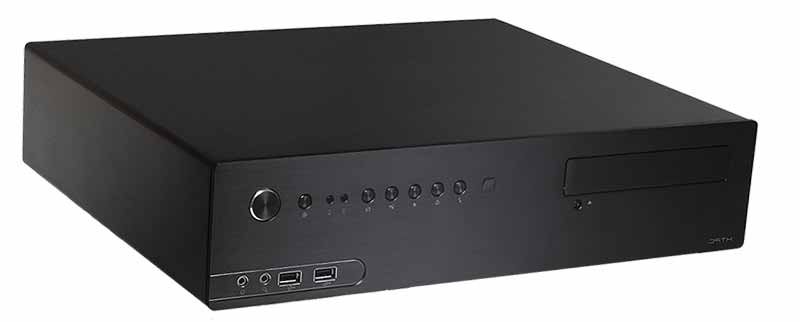
If you need to fit everything in a small case (HTPC) and at the same time need graphics not only for video, but at least sometimes play games, then I recommend the Corei5 5575 for $250
If games are not your last priority, but you also need to save space, then you will have to buy a discrete video card, for example 1050Ti (notebook) and a processor for it, for example, from the first configuration or similar. If you are looking for a laptop, then weed out laptops with a 1050Ti or 1060 video card that fit your budget and from what is left compare the processors that come with laptops.
If you need to save even more.
I recommend choosing from AMD, 7-series BristolRidge Excavator architecture.
It will have better graphics than solutions from Intel at the same price.
But intel with their coreI3 series of skylake architecture has slightly better processor cores.
Or even on Pentium/Celeron if you need to save on everything.
Because these budget processors, the games are only casual and are all about the same, then I recommend specific models I won't. The selection algorithm is as follows: look at your budget, the older the model you can afford, the better.
One of the best sites for comparing processors with the ability to sort by parameter of interest.
6. The most common myths about choosing a processor
- The system will work many times faster if the processor is very powerful and modern. But in practice, the performance of the system as a whole is influenced by many other factors. For example, the drive is very important; if you change the HDD to a fast SSD, the operating system will work faster, and programs and files will open instantly. If you install a processor that is 2 times more expensive or more, then you may not even notice the increase in performance.
- Smaller process technology means more powerful processor. This is not entirely true. A smaller technical process means smaller transistors in the chip, each of which consumes less electricity and heats up less. If the transistors are smaller, then theoretically more of them can be placed on the chip to increase performance. But in practice, there are many examples where processors with a higher technological process have greater performance. For example, AMD used to consider FX processors with 32 nm as flagship processors. And not 28-nanometer hybrid Kaveri (A10/8/6). Intel has a similar situation with Haswell-E and Skylake 22 nm versus 14 nm. Therefore, the process technology is more indicative of TDP, and performance may vary from chip to chip.
- More cores - more powerful. Here, it is important to understand what software you use. Most programs and games are not very good at parallelizing processes and most cores will be idle. Modern games also do not need more than 4 threads/cores, as we found out earlier.
The conclusion can be drawn as follows: it is impossible to judge performance by one parameter. You need to compare everything together and look at comparative reviews.
A month ago, Advanced Micro Devices (AMD) held a preview of Ryzen processors based on the Zen microarchitecture, which had been in the works for several years. The American chipmaker revealed clock speeds, power consumption levels and other technical information, but kept the most interesting details until the CES 2017 exhibition, recently held in Las Vegas. What is known about “zen chips” at this point and why is AMD confident that they can change the balance of power in the computer processor market?
What is AMD Zen
Zen is the main one AMD development since the release of “stones” on the Bulldozer microarchitecture in 2011, designed to undermine the position of its arch-rival, Intel. Its features include 14-nanometer manufacturing technology, two computing threads per core, 8 MB of shared L3 cache and self-learning instruction blocks. The new chips, which will be sold under the Ryzen brand, are designed for motherboards with socket AM4. Their release is scheduled for the first quarter of 2017.
The most powerful 8-core Ryzen version runs at clock speedsfrom 3.4 GHz, has a total of 20 MBcache memory (4 MB L2 and 16 MB L3) andcapable of executing up to 16 command threads. WhereinTDP indicator, which reflects standard heat dissipationwhen operating at full power,does not exceed 95 watts.
Ryzen gaming PC from Cybertron
What Ryzen from AMD can do and how much it costs
During the online presentation of New Horizon in December, AMD compared the work of the most powerful representative of the Ryzen line with the 8-core Intel Core i7-6900K (3.2 GHz), which has a TDP of 140 W. The performance of both processors was measured in the game Battlefield 1 at 4K resolution at maximum settings and in conjunction with the same Nvidia graphics. As it turned out, AMD's development not only generates less heat, but is also not inferior to its competitor in performance.
Moreover, Ryzen chips will likely cost much less. If rumors are to be believed, AMD will be pursuing a very aggressive pricing policy. The most productive “zen chip” with 8 cores will sell for $500, its slower version for $350. “Stones” from the 6-core SR5 line will cost $250, and 4-core SR3 – $150. For comparison, Intel prices the 4-core Core i7-6700K chip at $340, and the cheapest six-core chip at $380.
AMD Ryzen: release date, where to buy
In January, AMD shared a lot of interesting details about Ryzen. Firstly, the company announced the release in the first quarter of the year of 16 motherboards (manufactured by Asus, Biostar, Gigabyte, MSI and others) with a unified AM4 socket, as well as almost two dozen complete Ryzen computers, which can be purchased immediately on the day of release new chips. The PCs, AMD representatives said, feature "highest performance." The processors will be distributed in Russia by AMD partners: Asbis, Elko, Marvel and Oldi.
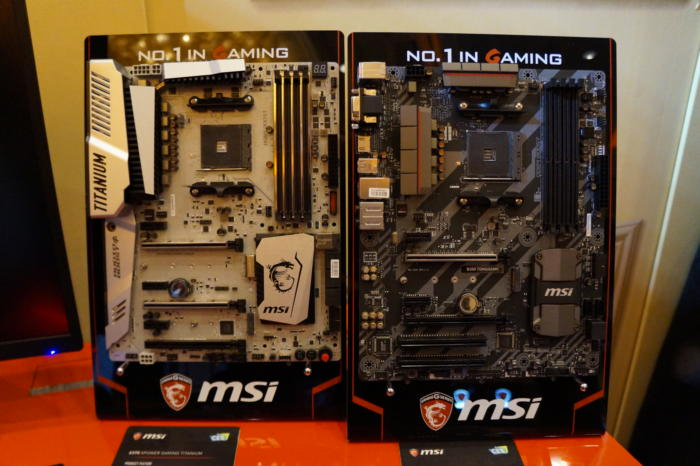
Maternal MSI boards X370 and B350M
According to AMD spokesman Jim Pryor, the company intends to support the AM4 platform at least until 2020, as it improves Zen architecture. This means that subsequent Ryzen chips will be compatible with all motherboards released in 2017. You will have to upgrade the board only when it gains momentum RAM such as DDR5 and other future technologies.
Officially, AMD publicly showed only one, the most sophisticated version of Ryzen with 8 cores, and compared it with Intel flagships. At CES 2017, the chipmaker assured that not only this, but also other processor modifications for any needs will be released in January-March, up to basic models with two cores and 1 MB of cache memory. Moreover, any of them, Pryor said, can be “overclocked.” However, with a caveat: it will be possible to increase the clock frequency of any chipset equipped with an AM4 socket, starting with the top-class X370 and X300 and ending with the budget B350. But owners of A series chipsets will not be able to perform this procedure.
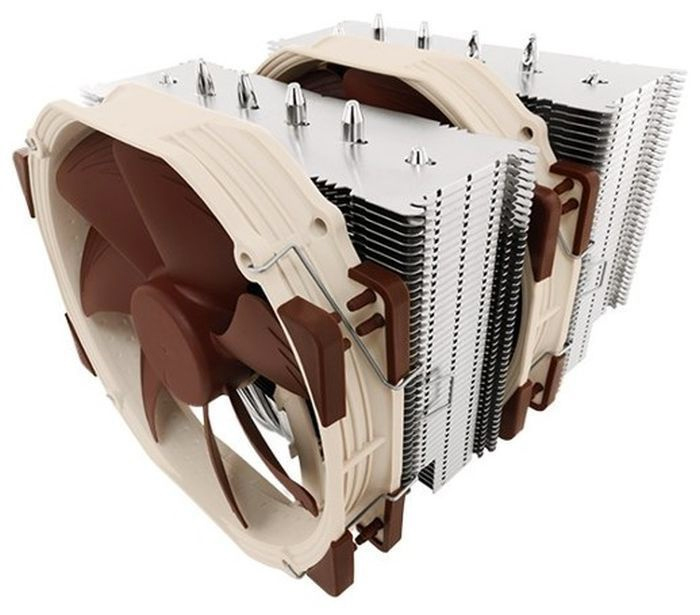
Cooler NH D15 from Noctua AM4 compatible
In addition, AMD denied the widespread belief that Ryzen and AM4 will require a mandatory cooling system upgrade. The new AM4 processor socket (µOPGA) has 1331 pins, which is almost 100 more than the AM3+ socket. Despite the increase in the number of pins, any cooler that is held on a clip can be connected to the motherboard. Pryor emphasized that only screw-mounted coolers need replacement.
This is not the first time AMD has declared Ryzen's superiority over Intel chips. At the end of last year, the company compared its own development with the competitor’s fastest processor, the Broadwell-E Core i7-6900K, which sells for $1,100. The 8-core Intel processor, transcoding video in the Handbrake program, completed the task in 59 seconds, and the AMD “stone” in 54 seconds, or 10% faster. At the same time, Broadwell-E operated at a clock frequency of 3.7 GHz, while Ryzen, which produces a third less heat, ran at 3.4 GHz.
AMD Ryzen: what skeptics say
However, critics considered Ryzen to be superior to Intel Kaby Lake is still unproven. It is unclear, for example, why this particular program was chosen to measure performance, and whether all cores on the Intel chip peaked under load. Skeptics also say that the elder AMD chipset The X370 has eight PCIe Gen 2 lanes, leaving Ryzen processor only 32 lines (much less than Broadwell-E).
In addition, it will be possible to connect flagship devices to AM4 GeForce video cards GTX 1080 and 1070 only 2-channel SLI, but not the faster 4-channel. In any case, it will be possible to judge the superiority of AMD “zen chips” over Intel processors only after the release of new products and based on the results of independent tests expected this spring.
This article presents only the best AMD processors in 2017.
If you don’t want to independently understand all the characteristics of each processor model or are not sure what you can choose the best option, take a look at our AMD CPU rating.
A good processor is the main indicator of the power and speed of your PC. AMD is one of the leaders in the processor market. AMD produces the following types of processors:
- CPU – central computing units
- GPU – a separate device that renders video. Often used in gaming computers to reduce the load on the central unit and to provide best quality video sequence;
- APU – central processors with a built-in video accelerator. They are also called hybrid, because such a component combines the central and graphic processor of a PC in one chip.
№5 - Athlon X4 860 K
The AMD Athlon line is designed for the Socket FM2+ socket. The X4 860K is the best and most powerful model of the entire series, which comes with three processors:
- Athlon X4 860K;
- Athlon X4840;
- Athlon X2
Fig. 2 – Athlon X4 860K hardware product package
The Athlon family is designed for desktop personal computers. All models in the line are distinguished by good multi-threading. The best results in the Athlon group were shown by the X4 860K model.
The first detail to note is the support for a virtually silent cooler that consumes no more than 95 W along with quiet operation and no loss in performance. If the processor has been overclocked using special programs, there may be an increase in noise in the operation of the cooling system.
Main characteristics:
- Family: Athlon X4;
- Number of processor cores: 4;
- Clock frequency – 3.1 MHz;
- There is no unlocked multiplier;
- Core type: Kaveri;
- Approximate cost: $50.
There is no integrated graphics in the CPU. This means that it is not recommended for use in gaming PCs, since the main load generated by games will be on the processor (unless the user uses an additional graphics CPU). The X4 860K processor is capable of supporting fast operation of general-purpose systems only.
Testing of the CPU operation was carried out using the AIDA64 utility. Overall, the model shows good results for a mid-range processor. If you are looking for an inexpensive CPU with multitasking support for your home computer, Athlon X4 860K is one of the suitable options.
Fig.3 – testing Athlon X4 860K
No. 4 – AMDFX-6300
AMD's FX-6300 is a CPU that supports the Piledriver architecture. Processors with this architecture have already become worthy competitors to new products from Intel. All processors from AMD FX group have excellent overclocking potential.
FX-6300 Features:
- Series: FX-Series;
- Supported connector: Socket AM3+;
- Number of cores: 6;
- No integrated graphics;
- The clock frequency is 3.5 MHz;
- Number of contacts: 938;
- The cost of the model is on average $85.
A characteristic feature of the processor is its flexibility. The clock frequency declared by the developer is 3.5 MHz, which is a rather mediocre figure among processors for personal computers. However, this CPU provides the ability to overclock the frequency to 4.1 MHz.
Fig. 4 – boxing of FX series devices from AMD
Acceleration of work occurs during intense loads. Most often in the process of rendering videos or working with games. It should be noted that this CPU model is equipped with a dual-channel memory controller.
CPU performance testing was carried out in Just Cause 2. The final results showed that the Athlon X4 860K supports a maximum graphics resolution of 1920 x 1200 pixels.
The computer also used an integrated GTX 580 graphics card. In the figure below you can see a comparative analysis of the performance of other processors that were tested under identical software and hardware environment conditions.
Fig. 5 – test result of Athlon X4 860K
№3 - A10-7890 K
The A10-7890K is a hybrid CPU from AMD. Despite the announcement of the development of a fundamental new technology and generations of processors, AMD decided to release another model in the A10 line. The company positions this series of devices as an excellent choice for desktop PCs.
The A10-7890K is the best-in-class solution for online gaming. Of course, you will have to lower the graphics settings, but as a result you will get good performance without severe overheating of the PC hardware.
Fig.6 – packaging of model A10-7890K
This processor has a built-in Radeon graphics unit that allows you to:
- Use online games and streaming without damaging the computer system;
- Stream all games from your console Xbox One. Requirement: availability installed Windows 10;
- Improved graphics settings when playing dark movie scenes and during video editing.
The processor comes with a Wraith cooler, which features very quiet operation. Also, the cooler supports backlight mode. Specifications A10-7890K:
- CPU Family - A-Series;
- Clock frequency: 4.1 MHz;
- Type of connector: Socket FM2+;
- Number of cores: 4 cores;
- There is an unlocked multiplier;
- Number of contacts: 906;
- Estimated cost – $130.
The main advantage of the A10-7890K is improved interaction with Windows 10.
The detailed characteristics of the processor are shown to us in the figure below:
Fig. 7 – detailed characteristics of APU A10-7890K
Results of testing the component using the standard Cinebench R15 test:
Fig. 8 – Cinebench R15 test result
As you can see, the tested component has surpassed in its parameters some AMD models in the A-10 and Athlon line. At the same time, the results obtained were not enough to outperform analogues from Intel.
№2 - Ryzen 5 1600 X
The first two places in our TOP are occupied by models of the Ryzen line. It is in the last few years that the architecture of these processors has become key for Advanced Micro Devices Corporation. The presented Zen microarchitecture is gradually returning the manufacturer to its leading position in the market.
Ryzen 5 is a direct competitor to Intel i5 processors. The CPU performs best in gaming systems. This is also stated by the CEO of AMD.
Characteristics:
- AMD Ryzen 5 Family;
- 6 cores;
- No integrated graphics;
- There is an unlocked multiplier;
- Clock frequency 3.6 MHz;
- Socket AM4 connector;
- The cost is about $260.
Most modifications of the 1600X lack a native cooling system. Users will have to purchase this component separately. The base frequencies do not cross the established 3.6 MHz mark. When operating in turbo mode (as a result of overclocking the processor), the clock frequency reaches 4.0 MHz.
All fifth-generation Ryzen models support SMT - surface mount technology. This makes the CPU easy to mount on a surface printed circuit board without the need to trim parts of the component.
Fig.9 – Ryzen 5 package
During testing of the CPU, even with the most resource-intensive programs, the maximum CPU temperature did not exceed 58 degrees. , Test results:
Fig. 10 – test of the 1600X model
Along with the line of powerful CPUs, AMD also released special firmware for their initial setup– AGESA. The utility allows you to reconfigure memory to avoid delays and interruptions in work.
№1 - Ryzen7 1800X
The Ryzen 7 1800X is an excellent choice for building a powerful PC or for multi-tier data server support.
AMD is currently developing another powerful member of the Ryzen family. In March 2017, the Ryzen 2000 X APU model was announced, which should go on sale at the end of the year.
Characteristics:
- Family: AMD Ryzen 7;
- 8 cores;
- Clock frequency 3.6 MHz with the ability to overclock to 4 MHz;
- Unlocked multiplier support;
- No support for integrated graphics;
- The average price is $480.
Fig.11 - Ryzen 7 1800X
1800X can simultaneously execute up to 16 threads program code. The processor works with SMT multi-threading technology. All Zen cores ensure efficient use of other computer hardware components. Increased throughput by supporting three-level cache memory.
Comparison of test results of the Ryzen 7 1800X with competitive models from Intel.
Fig. 12 - performance comparison
Pros and cons of all processorsAMD
AMD products are cheaper than similar CPUs from Intel. All the models discussed above have the following advantages:
- Inexpensive cost ;
- Even the cheap processor segment shows good performance for computers of the “General Purpose” group;
- Support for different platforms. Users who choose AMD have no problems checking the compatibility of the socket and CPU. For example, the AM2+ socket supports most AMD processor models. This way you can quickly replace a hardware component and increase PC performance by almost 100%;
- Multitasking support . As test results on various benchmarks show, a system running AMD can easily perform 3-5 tasks at once. From archiving large files to downloading data and playing games. Running multiple processes does not cause the operating system to slow down;
- Stable OS operation ;
- The user can set core voltage CPU, regardless of the class of the installed motherboard.
Please note that the developer has provided so-called “reserve power” in each processor model. This means that, regardless of the class of your CPU, you can overclock it by an average of 10%-20% using special software. We recommend using the Over Drive or Advanced Clock Calibration utility.
The negative aspects of AMD products include the following:
- Sometimes users encounter incompatibility between games or video editing programs and the processor. This is due to the lack of popularity among AMD for developers. Majority operating systems and software shells are tailored for Intel;
- Consumes more power than Intel. That is why AMD is not recommended to be installed in laptops if the user is important to the autonomy of the equipment;
- Low frequency of the 2nd and 3rd level cache.
Bottom line
With each CPU model released, AMD improves the performance of the component. In 2017, processors from the Ryzen and FX series received positive feedback from users.
AMD processors may become excellent choice, based on the price/quality ratio, if you choose a part for basic PC work or for playing games at medium graphics settings.
Thematic videos:
All about AMD processors / which processor to choose?
The processor is an extremely important part of any computer, smartphone, communicator, etc.
And the choice of this spare part should be approached with all responsibility.
In this article we will look at the TOP 15 processors of 2017 for computers.
What is a processor?

Before choosing a processor, it is worth understanding what it is. The processor is also conventionally called the CPU ( CPU) or PCU (central processing unit).
The processor looks like a small electronic unit that performs machine functions. This is one of the most important parts hardware system unit computer.
Initially, CPUs were called logical machines that executed complex computer programs.
Due to its compliance with the functions, a little later it was transferred to the computer device itself. The term steel was used back in the 1960s.
The design, technology and architecture of processors have changed many times since then. But the functionality remains the same.
The main characteristics include:
- such frequency;
- Energy consumption;
- architecture;
- performance;
- standards of the lithographic process.
Previously, processors were created for different systems computers separately. When such production became too costly, it was replaced by type-grade mass production.
Thanks to the fact that the processor was able to be minimized in size, it began to be implemented in PDAs and many other gadgets.
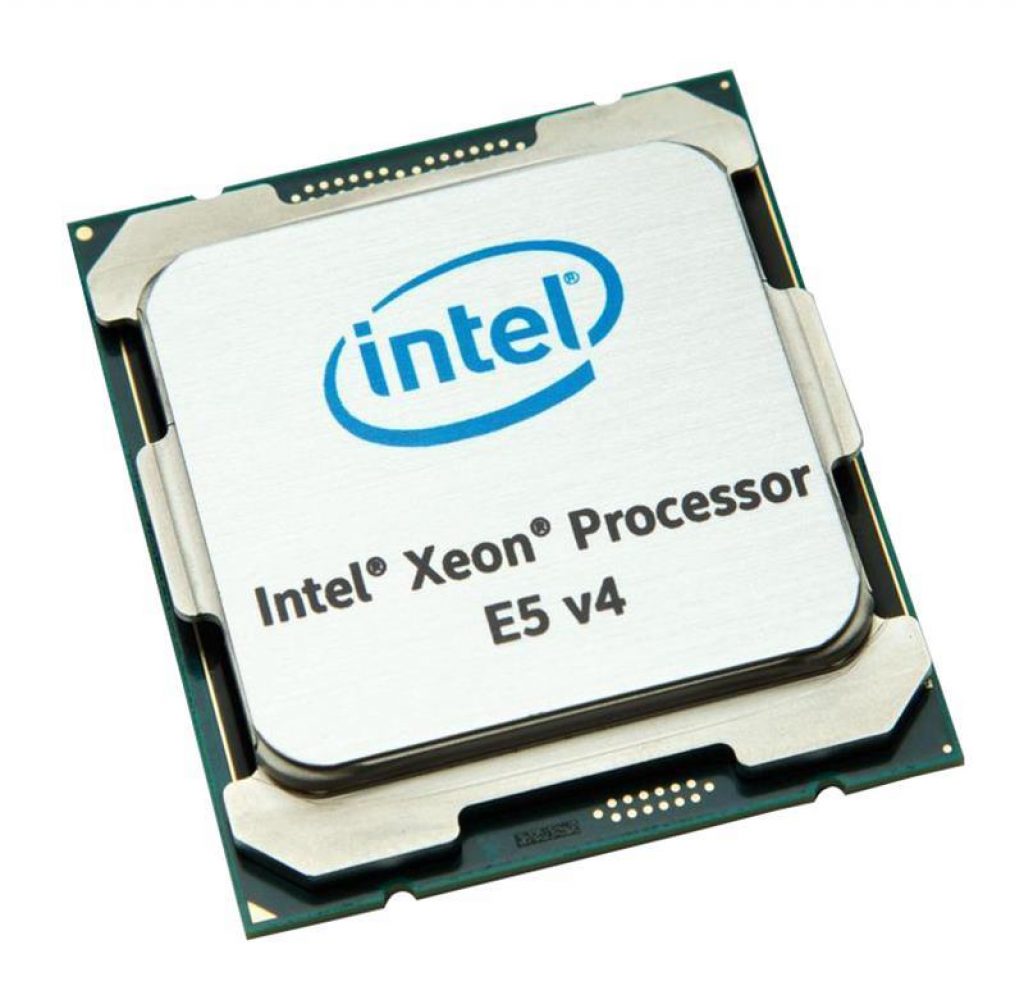
Intel "family" processor. To date - one of the most powerful processors. Refers to server vertical segments. Former product code name Broadwell.
Lithography of the product 14nm. Ten cores of this processor ensure stable operation of twenty threads.
The low base clock speed of 2.2 GHz can be overclocked using Turbo Boost technology up to 3.1 GHz. The 25 MB cache memory is equipped with SmartCache technology.
The processor is a conflict-free product, that is, are happy to be “friends” with the products of other companies.
Supports DDR4-1600/1866/2133 memory. Has four memory channels. Bandwidth is 68.3 Gb/sec.
The average memory size is 1.54 TB. But it depends on its type.
Like any processors of the Intel “family”, this model ensures stable and reliable operation of the server system, which is due to the reliability of the material parts of Intel products.
- not detected by users.
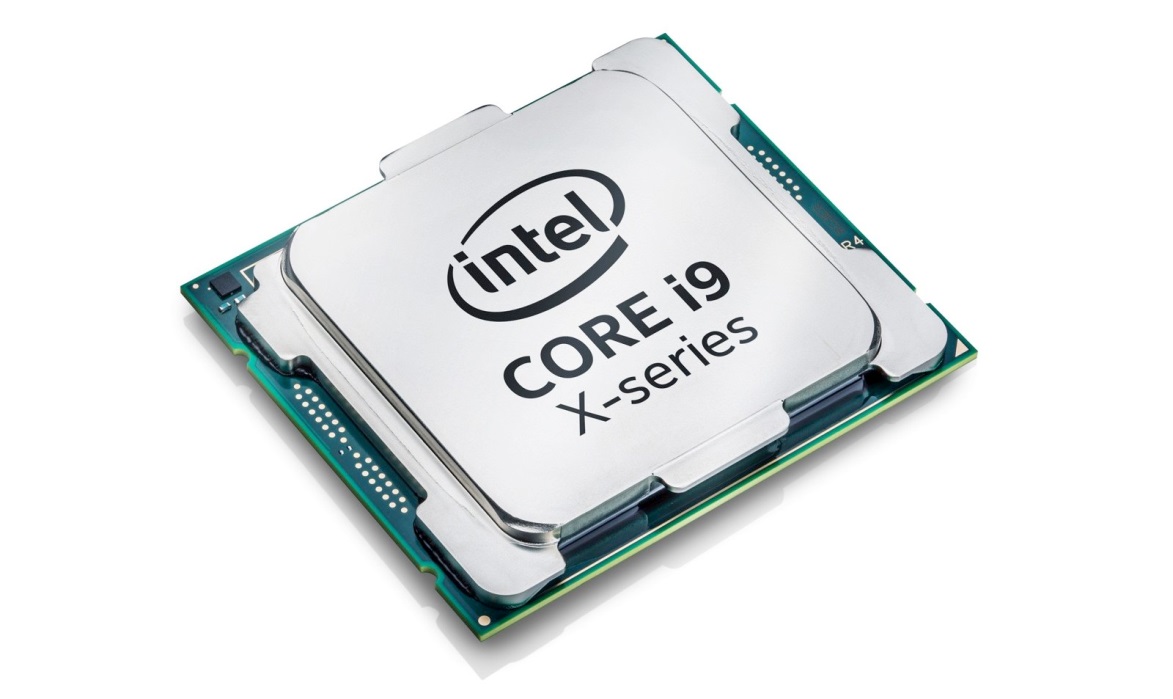
The architecture of this processor model is built on a 14-nanometer panel. Thanks to the latest nano technologies, the main load is distributed to the fastest cores.
The minimum chipset frequency is 3.3 GHz, and the maximum can reach 4.5 GHz.
Ten cores with 20 threads provide maximum performance, at which even the most demanding games will run easily at maximum settings.
The power consumption of this model is 140 W. There is no cooling system included, so you will have to purchase it separately.
- functionality;
- prospect of developing the model to higher characteristics.
- high energy consumption;
- overpriced.
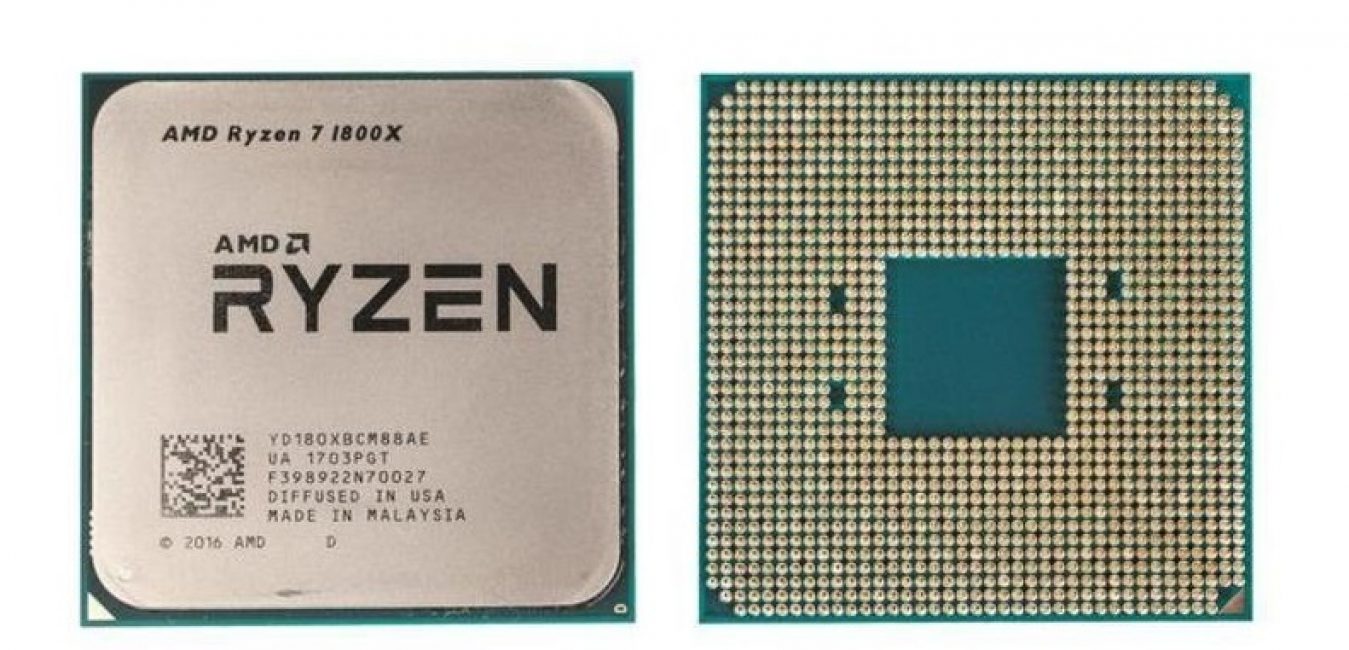
This processor model was released in 2017. This is the oldest of the entire range of models.
In terms of performance, this model is noticeably inferior to the Intel Core i7 processor, however, benefits from the number of threads and cores. The processor has a total of 8 cores that can be overclocked from 3.6 to 4 GHz.
To speed up data processing during manufacturing, Neural Net Prediction technology was used.
It is a kind of artificial intelligence, which helps speed up processing.
This model is one of those that does not come with a cooling system (cooler), so you will have to purchase it separately. The processor power of this model is 95 W.
- great potential for development;
- more low price among competitors with the same characteristics;
- Doesn't get very hot.
- not detected.
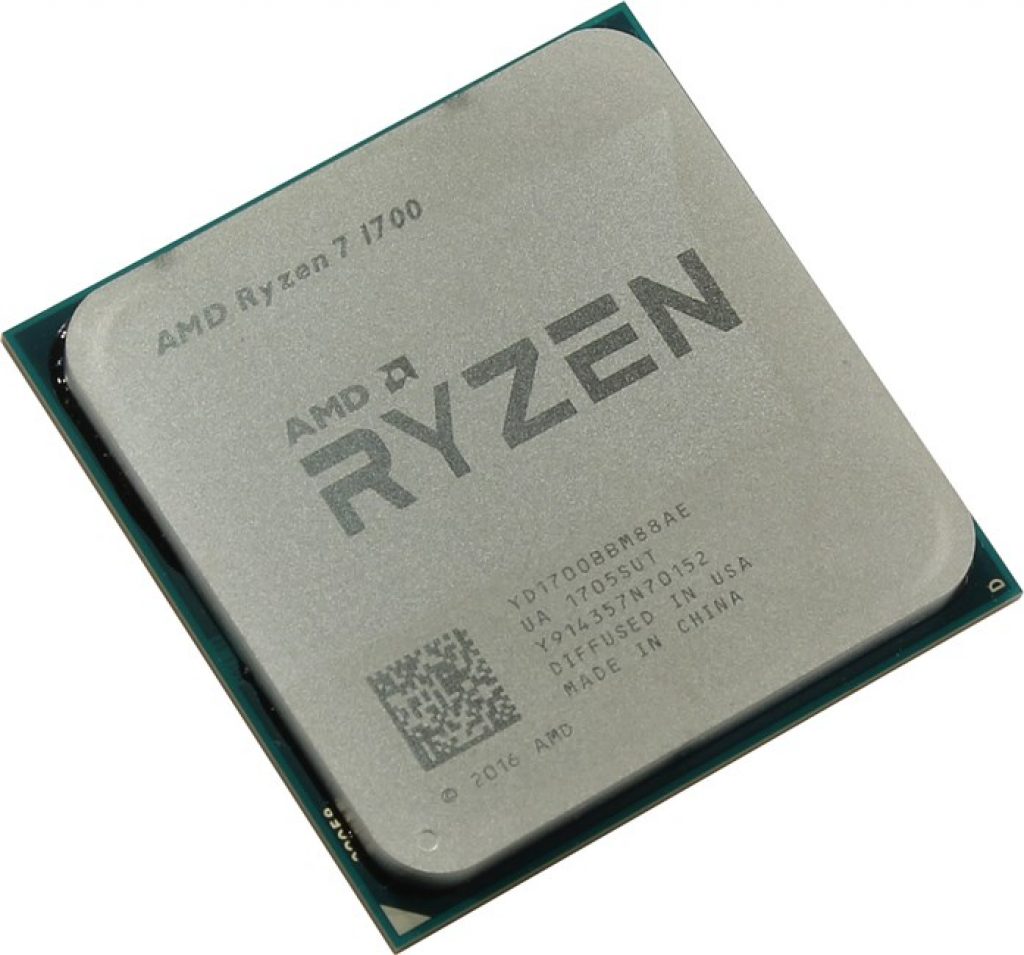
This processor model is suitable not only for office and home desktop PCs, but also for gaming computers. Handles even demanding games perfectly.
The processor architecture technology ensures excellent performance even under maximum chip load.
The smooth operation of 16 threads is due to the presence of eight powerful cores. The minimum frequency is 3.0 GHz, and with overclocking it can reach 3.7 GHz.
Despite such good performance, power consumption is relatively low - only 65 W.
Supports DDR4 up to 64 GB. The processor comes with a cooling system, which is a definite plus.
But if necessary you can install additional system cooling, although this is not required.
- excellent performance;
- possibility of “overclocking”;
- practically does not heat up;
- low price for its characteristics.
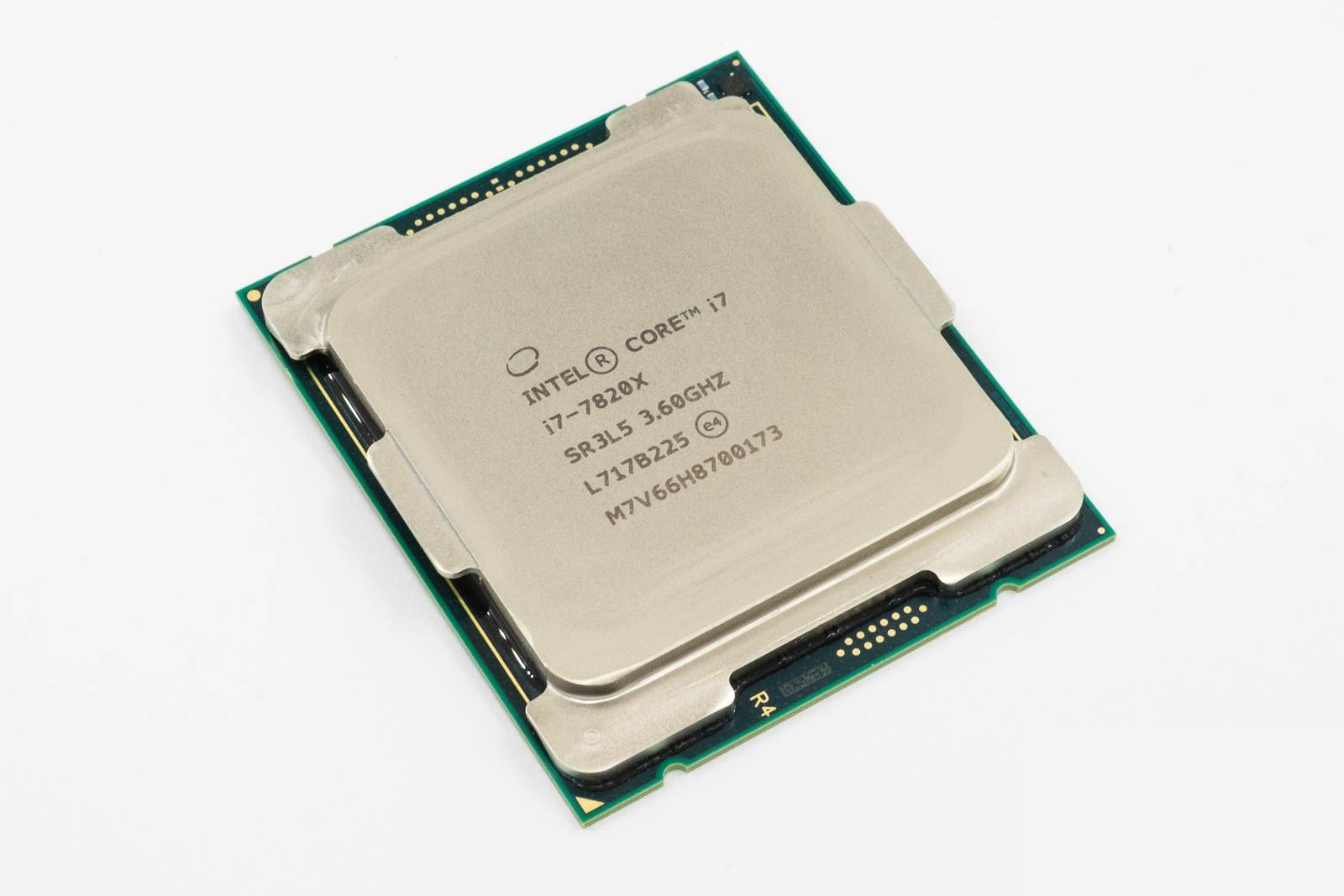
This model The processor is very powerful. She will ensure excellent uninterrupted operation even under maximum loads.
Demanding games at maximum settings and applications with “heavy” graphics will not interfere with the overall operation of the system, thanks to 8 cores running on 16 threads.
The minimum core frequency is 3.6 GHz. You can overclock the processor to 4.3 GHz.
The overclocking capabilities are impressive. Power consumption 140 W. Socket 2066 is installed. The processor is equipped with an 11 MB cache, which ensures even faster operation.
- good performance;
- fairly high frequency and overclocking capability.
- high price for these characteristics;
- heats up;
- There is no cooling system included.
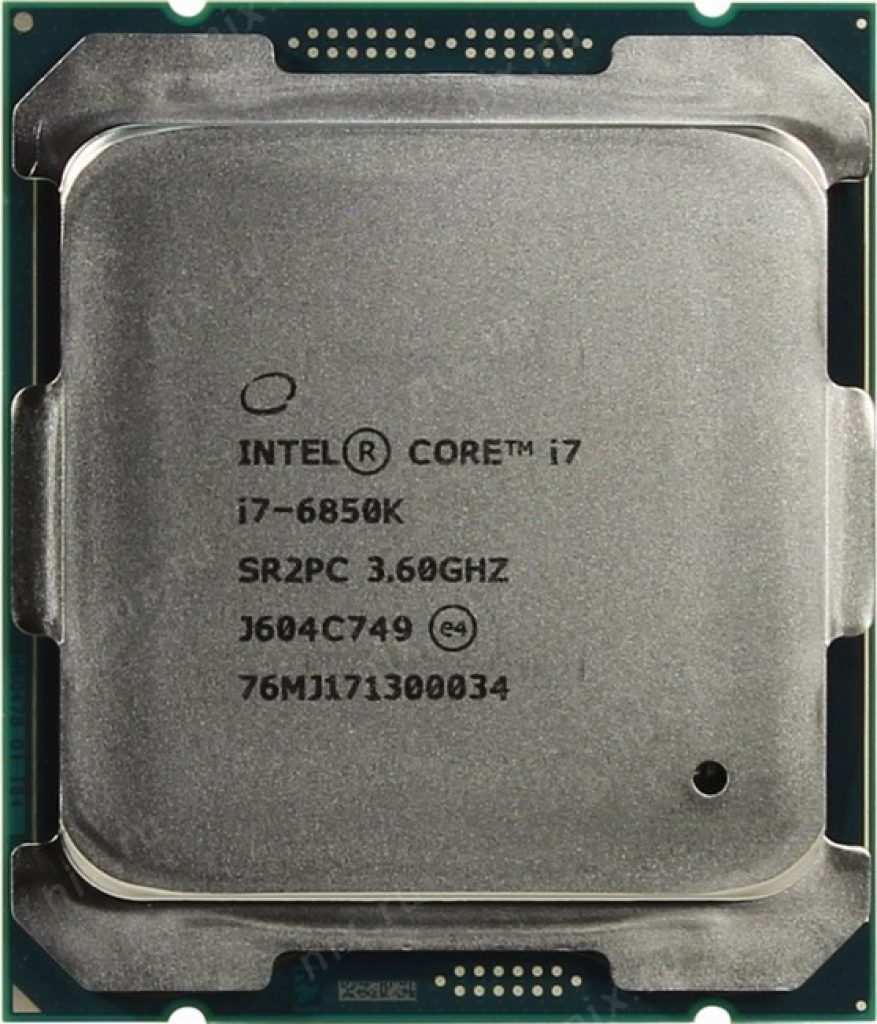
This model is most suitable for gaming PCs. 6 cores ensure excellent and uninterrupted operation of twelve threads. Due to this, maximum productivity is achieved.
The minimum frequency is 3.6 GHz, It will only be possible to “overclock” to 3.8 GHz.
RAM is supported by DDR4 up to 128 GB inclusive. Power consumption – 140 W, no cooling system included.
This processor quite popular among advanced PC users, as it hardly heats up and handles various types well, even the most demanding ones, at maximum settings.
- low price;
- acceptable power for gaming PCs;
- high frequency;
- There is no cooling system included;
- At maximum load the core frequency may vary.
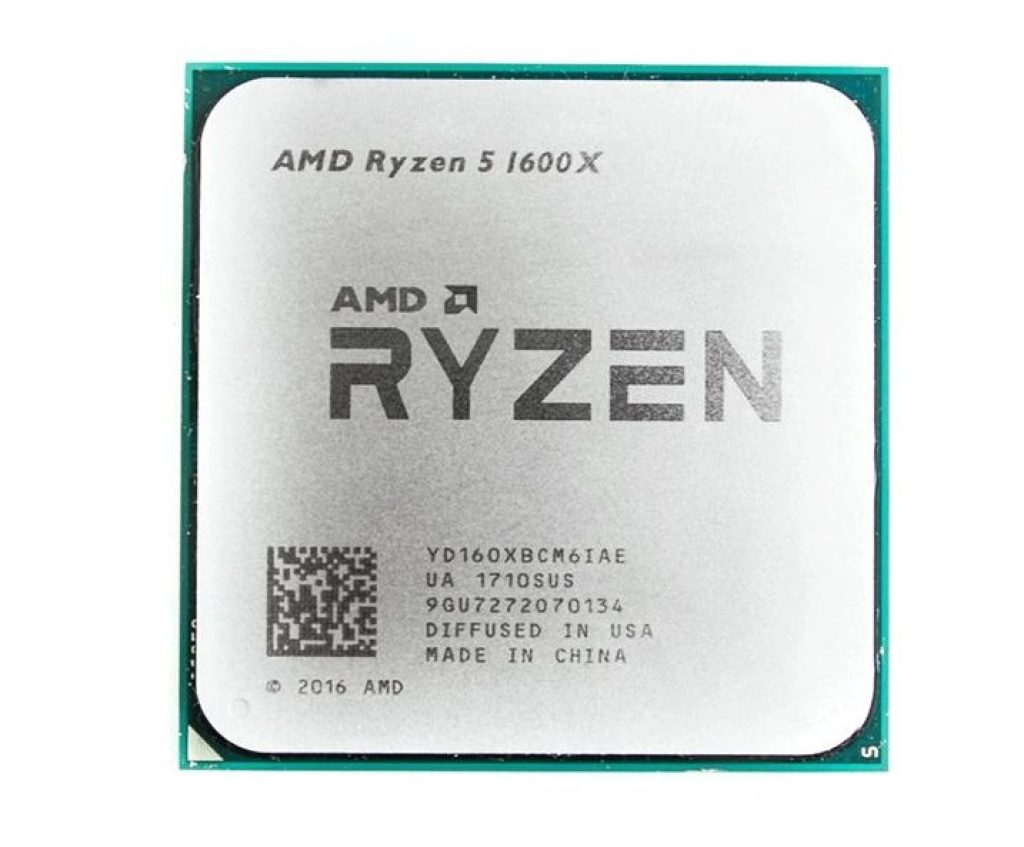
Of course, this is not the limit of his capabilities. In turbo mode it accelerates to 4.0 GHz.
“On board” it has a cache memory of 16 MB with the ability to unlock. PCI Express – 3.0. Dual-channel memory with a DDR4 interface will provide a speed of 2667 MHz.
The processor is well suited for home and office work PCs and will ensure high performance of your hardware. Ideally compatible with products from various companies from America to Russia.
It is worth considering that the presence of an AMD “family” processor requires a good cooling system.
Also, the processors of the reviewed company have high reliability and the most affordable prices for the user, unlike processors of other brands.
- does not heat up;
- power;
- excellent performance even at maximum load;
- low energy consumption;
- Suitable for gaming PCs.
- high price;
- Long BIOS loading time.

This processor model is intended for installation in server systems and workstations. Four cores ensure stable operation of eight threads.
The base processor clock speed is 3.7 GHz. With Turbo Boost technology, the clock speed can be increased to a maximum of 4.1 GHz.
The cache memory is 8 MB. Also, this processor has maximum conflict-free performance, that is, it is almost perfectly compatible with other hardware from various companies. Power consumption 72 W.
The cooling system is not included in the kit, so it must be purchased separately. It is advisable to install a powerful cooling system for the entire server cabinet.
Like any processors from the Intel “family,” this model ensures stable and reliable operation of the server system, which is due to the reliability of the material components of Intel products.
- high speed;
- relevance for several years.
- high price for its characteristics;
- does not use all of the eight available threads.
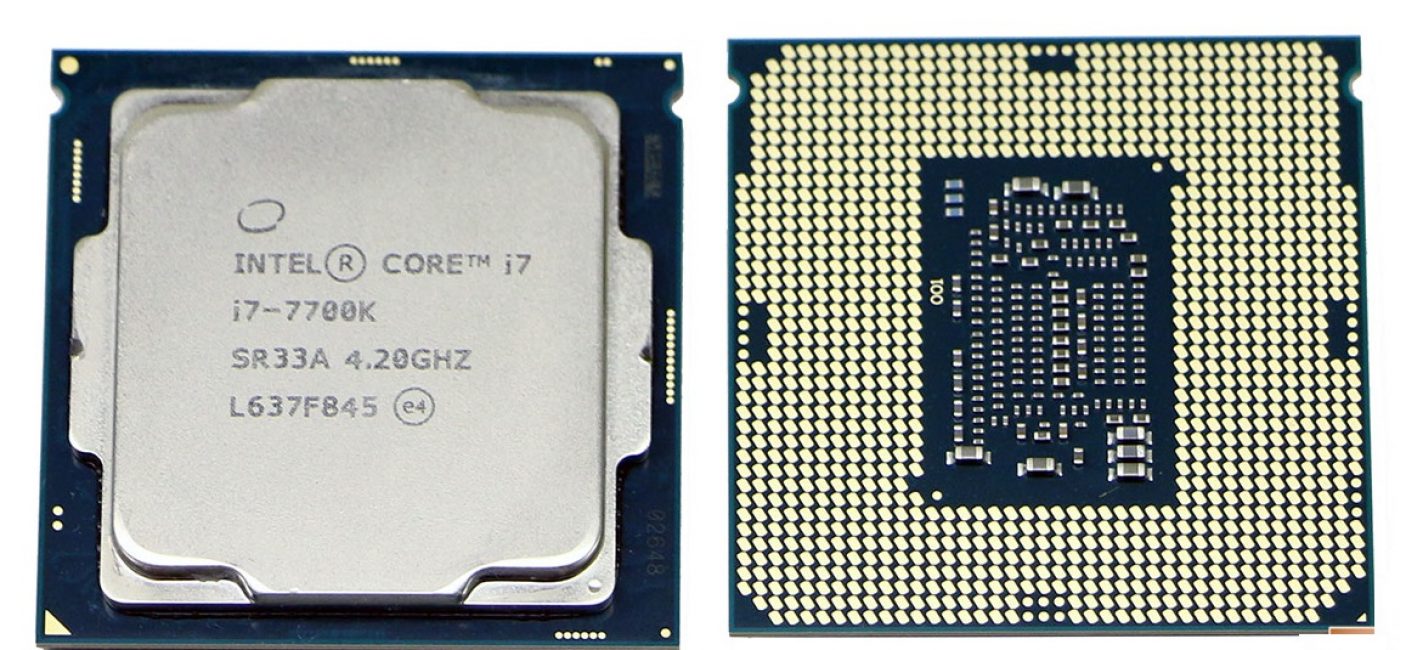
Intel boasts the most powerful processors. This model is distinguished by its high performance and frequency.
But its energy consumption is relatively high - exactly the same as that of a top AMD processor.
The minimum frequency of this processor is 4.2 GHz, and the maximum reaches 4.7 GHz.
The characteristics of this processor model make it possible to run the most demanding games of 2016 and 2017 at maximum settings.
To improve the performance of games and programs with high requirements, it is best to install a suitable one with this processor. Energy consumption is relatively high - 91 W.
- good performance;
- durable;
- does not get very hot;
- holds multitasking load well;
- fairly high minimum frequency.
- high price;
- a high percentage of models with a defective temperature sensor.
AMD Ryzen 3 1200
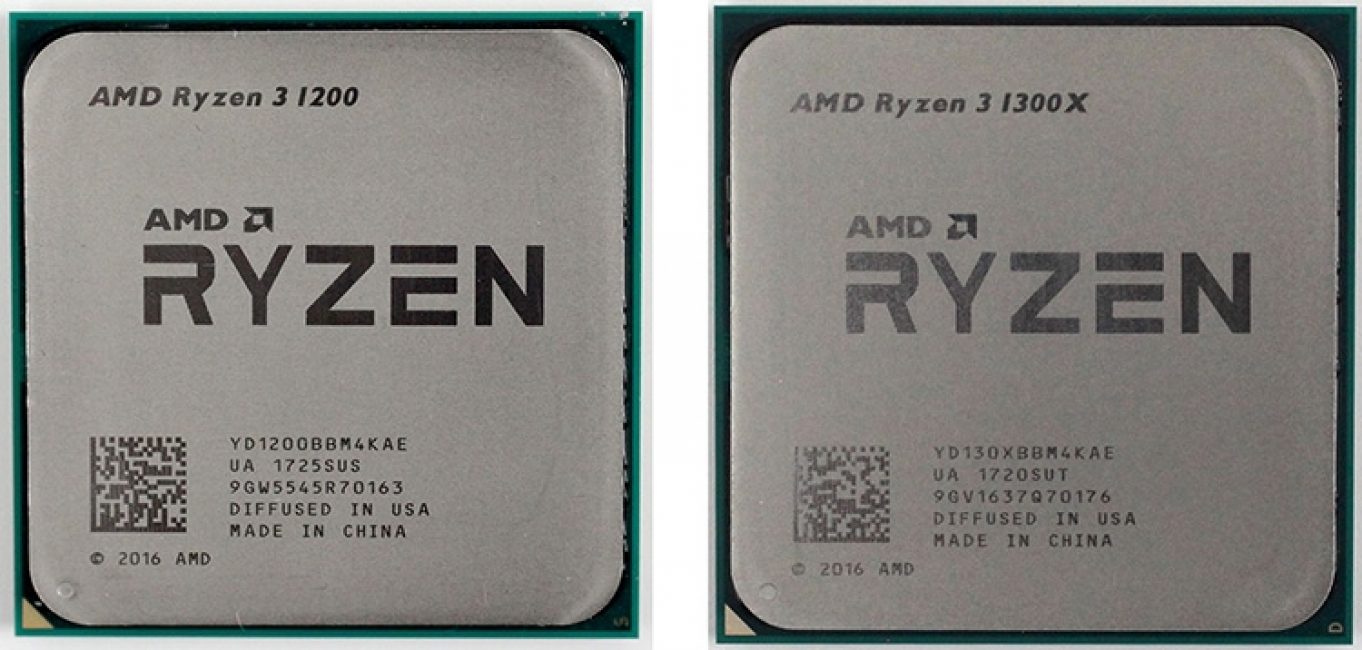
One of the budget processor models from AMD. It has only 4 threads, but their performance is equal to six threads of other processors from competing companies. The processor architecture is based on 14-nanometers.
As standard, the minimum chipset frequency is 3.1 GHz, and in turbo mode it accelerates to 3.4 GHz. Cache memory volume – 8 MB.
Four cores ensure smooth operation, and the power consumption of 65 W helps protect against overheating.
The maximum heating temperature can reach 95 ̊C, but to achieve this temperature you will have to try to load the processor.
There is a modification of this model - AMD Ryzen 3 1300X. It is slightly more high-frequency than 1200, and the cost is slightly higher.
- it is possible to “overclock” to 3.4 GHz;
- low price compared to competitors of the same characteristics.
- not detected.

Another representative of the AMD “family”. Four processor cores ensure stable operation of eight threads.
The nominal clock frequency of 3.2 GHz can be raised to 3.4 in turbo mode. The volume of the first level cache is 384 KB, the second level is 2 MB, and the third is 8 MB.
Also has the ability to unlock. 14nm CMOS. PCI Express – 3.0.
The maximum memory speed with the DDR4 interface version will be 2667 MHz on two memory channels. Maximum power consumption – 95 W.
Like any AMD product, has a slight drawback in the form of strong heat generation.
Therefore, this processor requires, at a minimum, its own radiator cooling system, or better yet, hydrocooling throughout the entire system unit.
- possibility of “overclocking” to 3.8 GHz;
- silent;
- relatively low price compared to competitors with the same characteristics;
- power.
- not suitable for demanding games;
- cache memory is small;
- Does not fit all motherboard models.
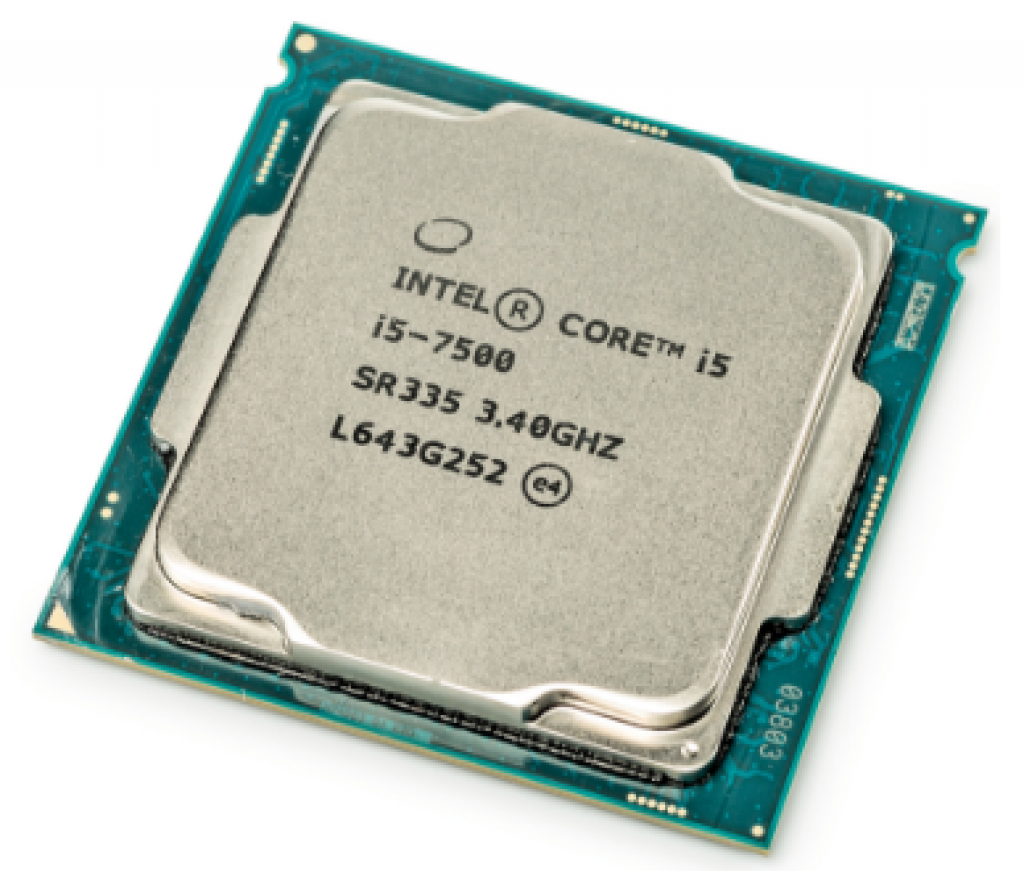
This processor model is cheaper than the previous version, but is not much inferior in performance to the Core i7, but nevertheless, graphically complex elements will be “heavy” for it.
With the money you save you can buy suitable video card so that the graphics are better and more interesting.
The processor is most suitable for office or home desktop PCs. The minimum frequency for this model is 3.4 GHz. In turbo mode, the maximum frequency can reach up to 3.8 GHz.
The processor case can heat up to 80 °C. The package includes a cooling system that you can choose at your discretion. Energy consumption is quite small - 65 W.
- fairly low price;
- performance;
- practically does not heat up;
- low power consumption;
- presence of turbo mode.
- not identified.
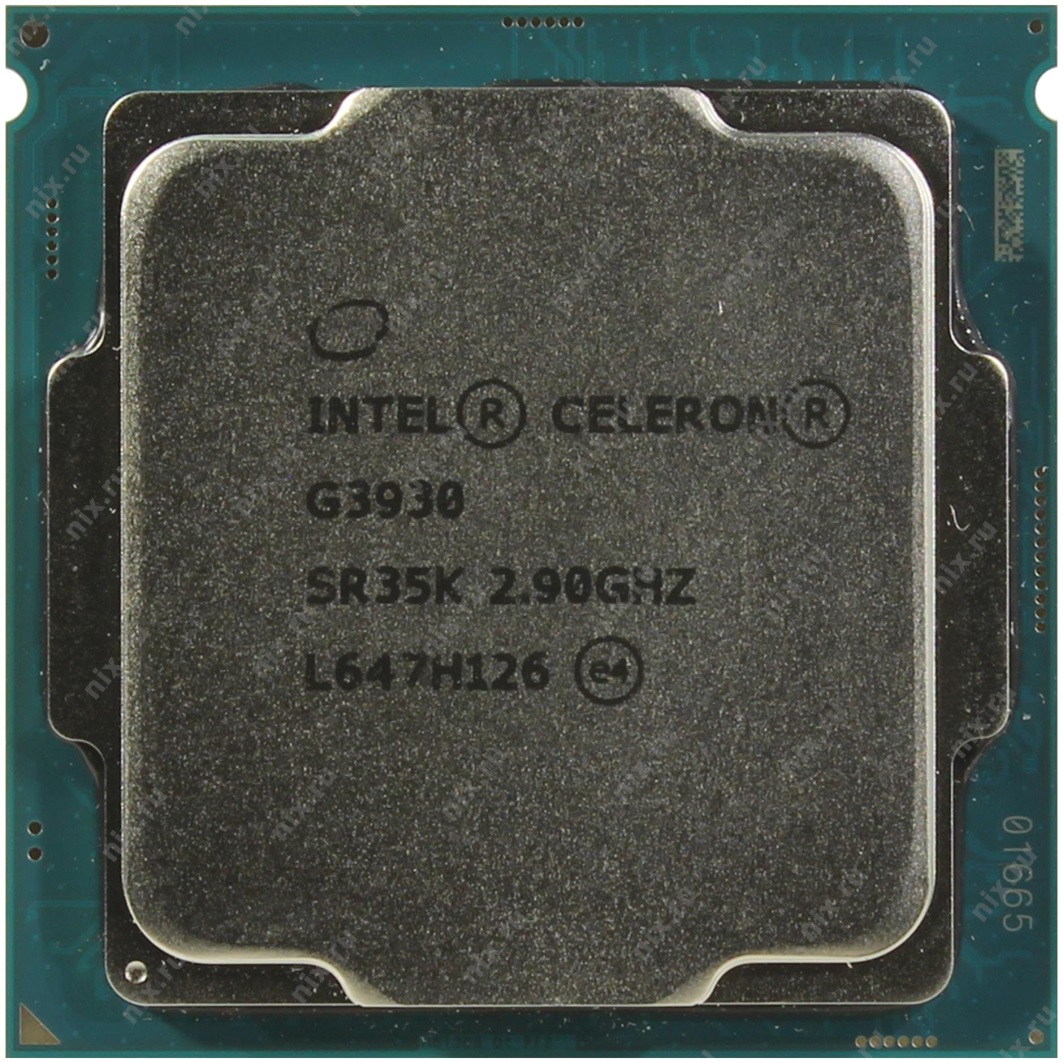
This processor model has good performance for its price segment. The downside is that the kit does not include a cooling system, so you need to purchase it separately.
With the Intel Celeron G3930, demanding games can be run at maximum settings without the risk of processor overheating.
The minimum frequency is 2.9 GHz, and maximum can reach 3.3 GHz.
2 MB cache provides average system performance. Maximum power consumption is 51 W, which is an integral advantage.
- low price;
- excellent performance;
- does not heat up;
- excellent built-in graphics.
- may need updating Motherboard BIOS fees.
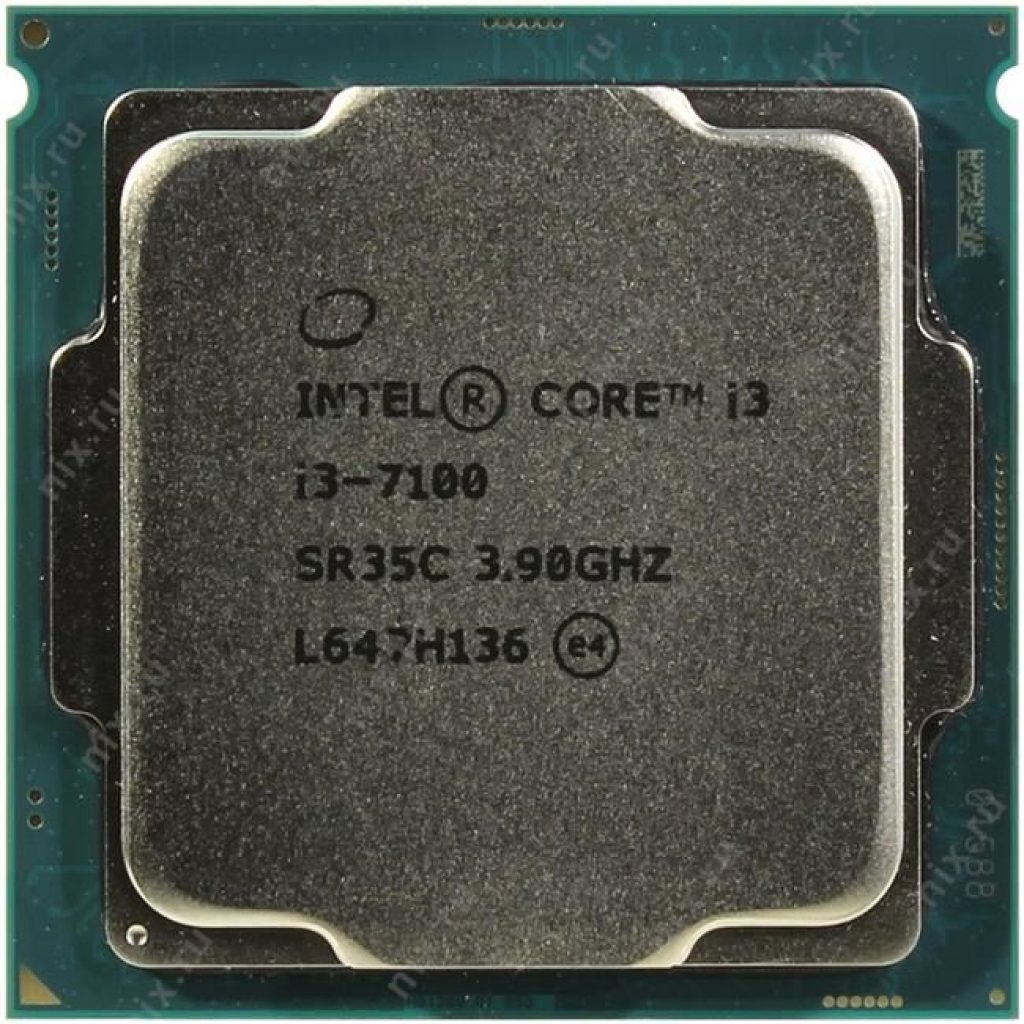
The next product produced by Intel with the same name Kaby Lake. Designed to work on home, office and gaming stations.
Has 2 cores for four threads with clock frequency at 3.9 GHz, 3 MB cache and SmartCache technology.
The estimated power of this processor model is 65 W. This processor is part of the “family” of conflict-free products, that is, it “gets along” well with any devices from other companies.
Supports two memory types such as: DDR4-2133/2400 and DDR3L-1333/1600. In this case, the maximum volume will be 64 GB.
This processor can serve as the main core for computer stations of any type, that is, it is perfect for both a home workplace and will not leave game lovers indifferent.
Of course, we should not forget that good processor requires a good environment. But it can easily work with hardware of lower versions, both from Intel and other manufacturers.
Intel Pentium G4400
This processor model is more suitable for stationary home and office PCs. For gaming computer this CPU is too "weak". It has 2 cores by 2 threads with a maximum clock speed of 3.7 GHz.
A 3 MB cache memory will allow you to run “light” games. High performance will prevent your computer from freezing and slowing down.
Supports DDR3 and DDR4 RAM up to 64 GB.
Energy consumption is reduced due to Enhanced SpeedStep technology. The architecture of the model is based on Skylake.
It also belongs to the class of conflict-free components, due to which it can work with many other devices from third-party companies.
- low price;
- accessibility to use;
- modern manufacturing technologies;
- practically does not heat up;
- high productivity and speed.
- not detected by users.
conclusions
The main thing to remember when choosing a processor is that it is one of the most important parts of your computer or server. Therefore, you should be very careful when choosing.
Do not forget that a powerful central processor will not work at full capacity with other weaker components of your PC.
That is, When completing a computer, you should choose hardware of approximately the same generation.
You may ask, which processor for servers and computers can be considered the best based on the TOP presented above?
Judging by those characteristics, we can talk about the model Intel Xeon E5-2630 v4 – as it is best processor for servers, and for For desktop PCs, the best option would be the Intel Core i9-7900X.
It's also worth remembering that CPUs in both servers and home PCs are very sensitive to cooling..
Therefore, when choosing powerful processor It is worth paying attention to water cooling systems. It is advisable to assemble your stations based on one manufacturer.
Again, if you are not a professional, you should not trust the selection to a consultant in the store, otherwise you risk getting a bad processor for a lot of money.
It is better to consult with a specialist who is not interested in selling.
If you choose good hardware, your PC or server station will give you joy for many years until the time comes to replace outdated parts.
| CPU | Frequency (GHz) | Cache (MB) | Cores/threads | Power, W) | Socket |
|---|---|---|---|---|---|
| 2,2 – 3,1 | 25 | 10/20 | 85 | 2011 | |
| 3,3 – 4,5 | 13,75 | 10/20 | 140 | 2066 | |
| 3,6 – 4,0 | 16 | 8/16 | 95 | AM4 | |
| 3,0 – 3,7 | 16 | 8/16 | 65 | AM4 | |
| 3,6 – 4,3 | 11 | 8/16 | 140 | 2066 | |
| 3,6 – 3,8 | 15 | 6/12 | 140 | 2011-3 | |
| 3,2 – 4,0 | 16 | 6/12 | 65 | AM4 | |
| 3,7 – 4,1 | 8 | 4/8 | 72 | 1151 | |
| 4,2 – 4,7 | 8 | 4/4 | 91 | 1151 | |
| AMD Ryzen 3 1200 | 3,1 – 3,4 | 8 | 2/2 | 65 | AM4 |
| 3,2 – 3,4 | 8 | 4/8 | 95 | AM4 | |
| 3,4 – 3,8 | 6 | 4/4 | 65 | 1151 | |
| 2,9 – 3,5 | 6 | 4/4 | 51 | 1151 | |
| 3,9 – 4,2 | 3 | 2/4 | 65 | 1151 | |
| Intel Pentium G4400 | 3,3 – 3,7 | 3 | 2/2 | 54 | 1151 |
